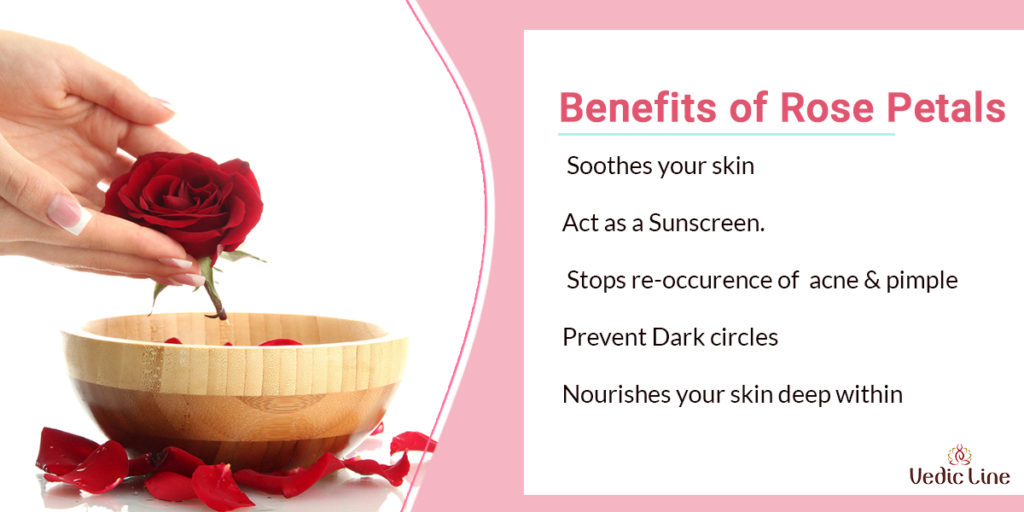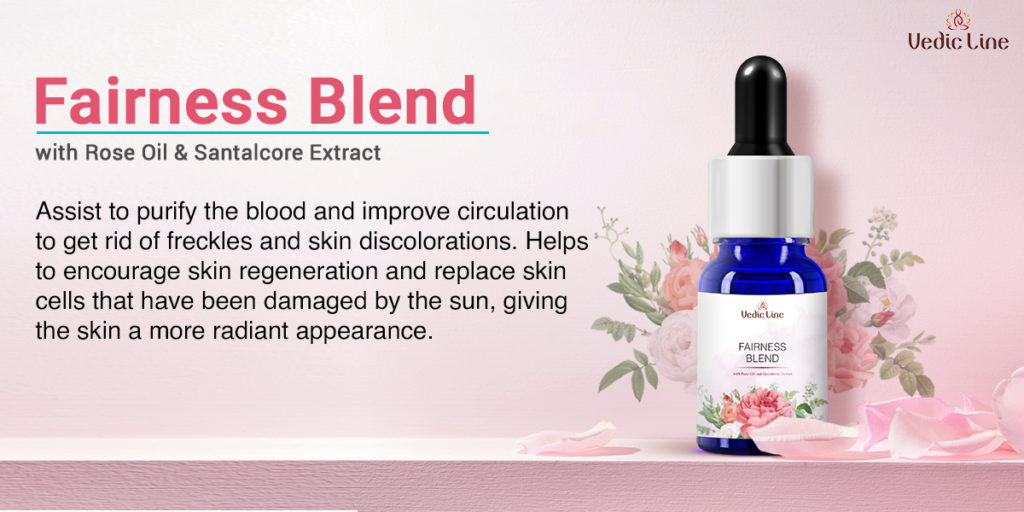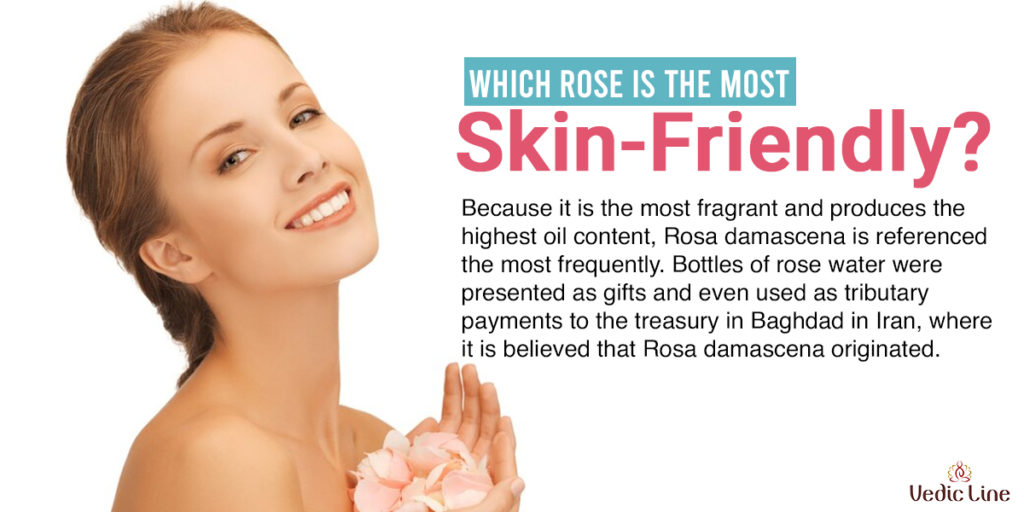The Truth About Rose Oil for Face: A Skin Care Breakdown

You’ve likely heard of a variety of oils that are beneficial to the skin, such as argan and coconut oil. Another lesser-known but increasingly popular oil is rose oil for face. But just what exactly is rose oil? And what are its benefits? Keep reading to learn more about this trending skincare ingredient.
What Is Rose Oil?
Rose oil is an aromatic oil derived from rose petals. Traditionally, rose oil is extracted by steam distillation, although nowadays it is also produced via solvent extraction.
The rose oil that you come across in your drugstore beauty products is likely to be synthetic, as the harvesting of fresh rose petals is time-consuming and difficult.
This means that, while rose oil is made from roses, it is not necessarily rose oil. Rose oil for face is a combination of the aroma compounds found in the rose, including citronellol, citronellal, geraniol, linalool, and phenethyl alcohol. When it comes to rose oil, the term “rose oil” refers to the oil (not the essential oil) that is extracted from rose petals. This oil is often used in skincare products, as it offers similar benefits to other essential oils. However, it is not as concentrated as other essential oils, so it is often diluted.
-
Product on sale
 Fairness Blend (Rose & Sandalwood)Original price was: ₹250.00.₹200.00Current price is: ₹200.00.
Fairness Blend (Rose & Sandalwood)Original price was: ₹250.00.₹200.00Current price is: ₹200.00.
Rose oil helps in many ways

1-Clears the skin
Rose oil for face has antioxidant properties that remove free radicals from the skin. This prevents the accumulation of dirt in the pores and keeps the skin healthy and clean. Using rose oil helps to remove dirt and dust from the face, which makes the skin glowing and radiant.
2-Reduces inflammation from the skin
As mentioned earlier, rosehip oil has anti-inflammatory and anti-inflammatory properties that are beneficial in inflammation and swelling. It helps in protecting the skin by reducing inflammation. Applying a few drops of rose oil to the affected area is beneficial. Another remedy to reduce skin irritation is to mix rose oil with coconut oil and massage lightly on the affected area.
3-Heals acne
The pimple disappears effectively with rose oil leaving the skin acne and pimple free. Not only acne but it also removes blemishes from the skin. Rosehip oil has antiviral and antibacterial properties that help eliminate the factors that lead to these types of acne and pimples. You can mix distilled water with rose oil and reduce its intensity and apply it to the face. Wash off your face with normal water after an hour.
4- Moisturizes the skin
Since rose oil regulates the pH level of the skin, it is a natural moisturizer for the skin. Since rose oil moisturizes the skin, most moisturizing creams and moisturizers contain a high amount of rose oil. You can also mix a little rose oil in your regular cream and apply it to the face.

5-Minimizes enlarged pores
Rose oil has excellent astringent properties, which shrinks the widened pores so that dirt does not sit in them. Generally, rose water is beneficial for women over the age of 30 as it helps in cleaning the pores and shrinks the enlarged pores thus reducing the chances of acne and pimples.
6-Age looks younger
Rose oil has many anti-inflammatory, anti-bacterial, and antioxidant benefits for your skin. Your lifeless, dry, and aging skin benefits from using this oil. Massaging with rose oil reduces the age on the face and also fades the signs of age on the face. Regularly massaging rose oil on the face does not cause fine lines and wrinkles on the skin.
Why is Rose Oil So Popular?
Rose oil is incredibly popular, largely because it is a natural product. This oil is often used in place of synthetic fragrances and preservatives in skincare products, making it incredibly appealing. Further to this, rose oil’s scent has been known to provide a calming effect on the body, making it ideal for use in relaxation and sleep-inducing products. Additionally, the antioxidants found within rose oil are known to be beneficial for the skin, making it a popular ingredient in anti-aging skincare products.
-
Product on sale
 Hand & Foot Spa Kit (Rose and Jasmine)Original price was: ₹1,800.00.₹1,620.00Current price is: ₹1,620.00.
Hand & Foot Spa Kit (Rose and Jasmine)Original price was: ₹1,800.00.₹1,620.00Current price is: ₹1,620.00. -
Product on sale
 Eucalyptus & Rosemary Face WashOriginal price was: ₹175.00.₹140.00Current price is: ₹140.00.
Eucalyptus & Rosemary Face WashOriginal price was: ₹175.00.₹140.00Current price is: ₹140.00. -
Product on sale
 Fairness Blend (Rose & Sandalwood)Original price was: ₹250.00.₹200.00Current price is: ₹200.00.
Fairness Blend (Rose & Sandalwood)Original price was: ₹250.00.₹200.00Current price is: ₹200.00. -
Product on sale
 Vedicline Eucalyptus & Rosemary Moisturizer₹168.00 – ₹240.00
Vedicline Eucalyptus & Rosemary Moisturizer₹168.00 – ₹240.00
How to Use Rose Oil

Rose oil benefits for skin is quite strong and typically extremely pricey. Whether you intend to apply it topically or inhale it, it should be diluted.
- Using Rose oil while bathing:– Add 10 drops of rose essential oil to a carrier oil, then pour into a warm tub to create a rose oil bath. Always dilute essential oils in a carrier oil before using them in water.
- For Foot Bath:- Add a few drops of rose oil to a foot bath, dilute it, and soak your feet for ten minutes.
- For anxiety, stress, or depression:- You can either use a diffuser to inhale rose oil to alleviate anxiety, tension, or sadness, or you can delicately dab it on your chest, neck, and wrists. Before applying it to your skin, make sure you mix it with a carrier oil like coconut, almond, or jojoba. A rose oil massage, in which the rose essential oil is combined with a carrier massage oil, may also be beneficial for you.
Know how to make rose oil?
Making rose oil for fairness is very easy. To make this oil, take a cup of rose petals and take a little olive oil. Then heat water in a vessel. Put olive oil in a glass bottle after that.Fill the oil bottle with these rose petals now. Then close the bottle and leave it like this overnight. In the morning, squeeze the rose petals and extract the oil from them. Then keep this oil in a separate vessel.
Final words
When it comes to natural skincare products, rose oil is among the best. Rose oil for face makes an excellent addition to skincare products, particularly when it comes to protecting against aging and sun damage.When selecting a rose oil, it is important to consider your skin type, as not all oils are suitable for all skin types. With this in mind, rose oil for glowing skin makes a fantastic addition to skincare products.
